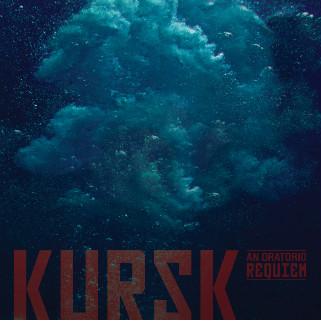The event has passed in to memory become a byword for callous indifference, hopeless despair and the material decline of Russia as a military force.
In response to the Kursk tragedy, composer David Chisholm working in collaboration with Russian poet Anzhelina Polonskaya has created an oratorio requiem that had its world premier on 22 October, the last day of the Melbourne Festival. Running almost two hours, this is a demanding work but one that rewards your complete attention. It is both complex and ambitious.
Much awarded for his innovative work, Chisholm composes at the leading edge of contemporary music – recent major projects have included the noted scores for BalletLab’s Axeman Lullaby and Brindabella. But here the mood is a swirling miasma of melancholy, an inky dark incarnation of despair conjured by the composer’s formidable vision.
In the first section the 15 poems – not a libretto as such – is read first in Russian and then in English translation. The oratorio proper commenced after interval. Chisholm set an eight voice male consort against the Arcko symphonic chamber orchestra (under conductor Eric Dudley’s tight baton), bass-baritone Christopher Richardson beautifully voicing the dead and soprano Jessica Aszodi voicing a siren – more an evocation of the sea itself than a voice luring the sailors to death – and an angel who offers no comfort.
Chisholm makes full use of non-traditional sonorities – cellos are struck, the piano is prepared and deadened, cymbals are bowed, a holographic singing bowl is set with plucked violins pushing the sound, making boundaries of the entire ensemble and pushing up to the point where superfluity threatens discord, where pathos might tip to bathos, and then he pulls back. The effect is engaging and sometimes dislocating.
This is not a simple work. Don’t expect a narrative – the poetry evokes moods and sets up imagery striking for its luminous pathos against the music but it does not literally tell the story of the Kursk. Chisholm (who has referred to post-modern methods in his composition) draws on numerous musical sources, deliberately setting off multiple reference to subconscious memory and allowing cultural constructions of our imagery of Russia to surface and meld with the music. Combined with the talents of his vocalists the result is dark musical poetry. To my ear there is a reference to Igor Stravinsky’s powerful, crushingly sad and seldom performed Requiem Canticles, especially in the use the winds and brass.
And Chisholm has made fine use of the brass talent of trumpet virtuoso Tristram Williams. For many he shone in the clarity of the Flugel horn passages demanding exceptional technique to execute the ¼ tones. But to me he excelled, as only a virtuoso can, when he blew through the instrument without sounding a vibration – the haunting, barely perceptible rush of air modulated by stopping the instrument valves produced an eerie, very disturbing sense of emptiness and cold, dissipation and suffocation.
At that point I could sense the doomed men on the Kursk tapping desperately on the hull of their stricken vessel as death approached, gasping.
Not surprisingly, the audience was unrestrained in its enthusiasm for this important, moving achievement and the superb performances that made its premiere a Melbourne Festival highlight.
KURSK: An Oratorio Requiem
Composer: David Chisholm
Poet: Anzhelina Polonskaya
Produced by Maakan Productions
Conductor: Eric Dudley
Bass-Baritone: Christopher Richardson
Soprano: Jessica Aszodi
1/4 Tone Flugel Horn: Tristram Williams
Orchestra and Consort: Arcko Symphonic Project
Melbourne Recital Centre, Elisabeth Murdoch Hall
October 22
Melbourne Festival
October 6 – 22





